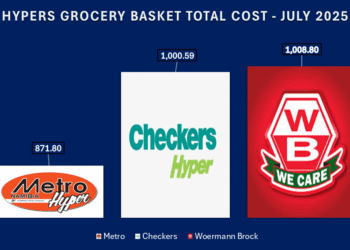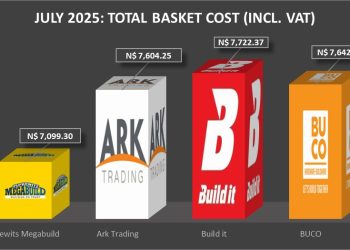
Namibia’s heavily concentrated market structure is pushing up consumer prices, limiting choice, and affecting product quality, competition experts have warned.
Speaking at a recent Competition Law Seminar hosted by Candace Competition Law Advisory Services (CCLAS), Director Grace Mohamed said the dominance of a handful of firms across key sectors was a by-product of Namibia’s small market size.
“We have an economy where very few firms dominate, and many of these large firms also own several sister companies,†Mohamed said. “This structure often encourages business practices that are harmful to consumers. When consumers have limited options, they usually pay higher prices and do not always receive the best products.â€
She added that the lack of competition has led to a noticeable drop in quality and product turnover. “Sometimes products arrive late or are of inferior quality. In some cases, items already phased out in South Africa are still sold here. That is a direct outcome of how our economy is structured,†she said.
The Namibia Competition Commission (NaCC) has stepped up its scrutiny of dominant firms in sectors such as telecommunications, cement, retail, and milling.
NaCC Chief Executive Officer Vitalis Ndalikokule said the Commission had recently blocked a deal in the cement sector where a dominant player, already holding a 90 percent market share, tried to acquire a stake in a rival company.
“You are talking about non-compliance, but let’s look at how this plays out in real terms,†he said. “In cement, we saw a company attempt to acquire a stake in a rival firm while holding 90 percent of the market. We blocked it because allowing that deal would have destroyed any chance of fair competition.â€
Ndalikokule raised similar concerns in the milling and telecom sectors. “If these firms decide to fix prices or coordinate their actions, the effects are immediate. We are dealing with basic staple goods, so any form of collusion hurts the consumer directly and severely,†he said.
Retail and telecoms, he noted, are especially skewed. “Small shops cannot match the discounts and reach of dominant retailers. In telecoms, we only have a few providers, which limits competition and raises concerns about service quality and cost.â€
State-owned entities are also under increased scrutiny. “We do not treat government-linked firms differently,†Ndalikokule said. “If their size and influence pose risks to market competition, we will step in. That includes mergers and conduct that could limit consumer choice or inflate costs.†He cited cases involving Namport and entities tied to public pension funds and infrastructure authorities.
The mining sector, particularly in light of increasing foreign ownership, is another area the Commission is reviewing, according to Ndalikokule.
The seminar brought together procurement and compliance officers to examine how competition law intersects with public and private sector conduct, and how enforcement can be strengthened to protect consumers.










